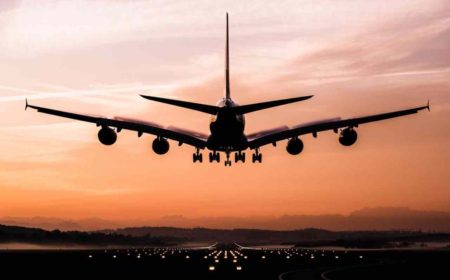
The departure board at Atlanta’s Hartsfield-Jackson international airport’s updates with cancellations while a nearly vacant Plane Train shuttles back and forth between seven largely empty terminals.
Greensboro, North Carolina: canceled. Houston-Bush, Texas: canceled. Los Angeles, California: canceled. Milwaukee, Wisconsin: canceled.
Though known as the world’s busiest airport, and the state of Georgia’s largest employer, the coronavirus outbreak and its resulting shutdowns have wiped out the crowds at Hartsfield-Jackson, and with them, a revenue stream propping up the southern capital’s middle class.
A city within a city, the giant airport’s success keeps tens of thousands employed across the metro area, but as the airline industry takes brutal hits amid travel bans from Europe to the United States, its troubles are a huge blow for Atlanta.
“Revenue is probably down, off the top of my head, 50 to 60%,” the airport’s general manager, John Selden, said on a city council transport committee conference call at the end of March.
“We usually have 2,600 flights a day here, fully loaded. In other words, almost no seats available. Right now, we’re down to 1,200 flights and they’re mostly empty,” Selden said. The airport is down 85% in passengers, he added.
A staggering 63,000 people work at the airport when flights run at capacity. Among employees are thousands of airline workers, janitorial staff, restaurant staff and security, with a median salary of $71,500, well above the city’s median income. Approximately three-quarters of a million jobs are directly or indirectly tied to the airport across the south-east of the United States.
An employee at the airport who works directly with one of the airlines, asking to be identified as E because she does not have permission to speak to the media, said her hours have been cut from 40 to 30 hours already. “On a regular day, maybe there was a flight coming into a gate every two to three hours. Right now, there’s a flight coming in to [a handful of gates] every two to three hours,” E said.
She hasn’t heard anything from her employer about whether she might lose her job at some point. “I don’t know,” she said.
But it’s all around her. Dunkin’ Donuts is closed, she ticks off. So is the shop next to it. A burger chain had just served its last meal.
Amid the red cancellations and lines of parked planes, E continues to work, continues to be paid to interact with passengers and staff at the airport. Her employers have not offered her protective gear as she handles equipment and walks through waiting areas and gates before she goes home to her family each night. Instead, she says, she has a couple of masks at home from her stepfather, but the company does wipe down their areas, she stresses.
She interacted with only two people on one recent workday, she said, both elderly. Two TSA agents at Hartsfield-Jackson have tested positive for coronavirus, according to the Transportation and Security Administration.
Though she adds, that’s not terrible because on a normal day, if the airport were busy, she would come across contact with five times as many people.
“Slow. It’s just slow,” she sighed.



